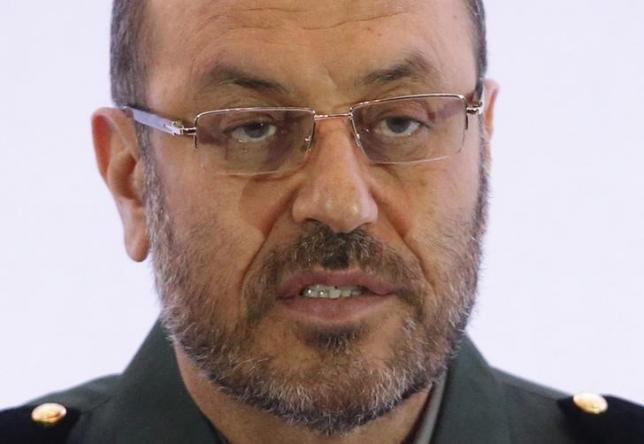
The broadside illustrated new tension between Iran and the United States, despite last year's nuclear deal, with contrasting stances on the conflicts in Yemen and Syria underpinning the latest barbs.
If the US seeks "stability" it should "leave the region and stop supporting terrorists," Defence Minister Hossein Dehghan said, quoted by the website of state television.
Border committee: Iran agrees to probe cross border shelling
"If John Kerry thought about these subjects, he would no longer utter nonsense and foolish words."
The reaction came after Kerry speaking on a visit to Bahrain on Thursday condemned "the destabilising actions of Iran," noting that the United States was taking Tehran's actions "very seriously".
But Dehghan denounced Kerry's remarks as a sign of "frustration" at "Iran's defence capabilities", charging that it is the US that is intervening in the Middle East on account of massive arms sales.
"Americans have made countries in the region dependent on them through sale of weapons and suggesting that implementing US policies are a must for their survival".
A series of ballistic missile tests by Iran since the nuclear deal was struck last summer -- sanctions against Tehran were lifted in January in return for curbs on its atomic programme -- has added to US anger.
Concern over Iran's alleged involvement in the conflict in Yemen has not died down.
The US Navy said Monday its forces in the Gulf had seized a shipment of weapons on March 28 believed to be from Iran that was destined for Huthi rebels fighting in Yemen.
Sceptics of Iran nuclear deal 'all proven wrong': Rouhani
"We call on Iran to constructively join in the efforts to make peace and to help us to resolve Syria and rather than to continue to send weapons to Huthis, join in the effort... to make peace and to work toward a cessation of hostilities," Kerry told reporters in Manama.
Kerry later held a meeting with his Gulf Arab counterparts, two weeks before President Barack Obama is scheduled to attend a summit of the six-nation Gulf Cooperation Council in Riyadh.
The secretary of state also said that the US and GCC nations "remain united in our opposition to Iran's missile activities".
However, a top Iranian military official said Saturday there would be no change to the missile programme.
"The US is not qualified to make comments about our defence power," said Revolutionary Guards deputy chief General Hossein Salami.
"Our missile capabilities will never be negotiated or compromised."



1725030039-0/Untitled-design-(2)1725030039-0-165x106.webp)
1725366721-0/kyle-(1)1725366721-0-165x106.webp)



1732707402-0/Untitled-design-(8)1732707402-0-270x192.webp)








COMMENTS
Comments are moderated and generally will be posted if they are on-topic and not abusive.
For more information, please see our Comments FAQ